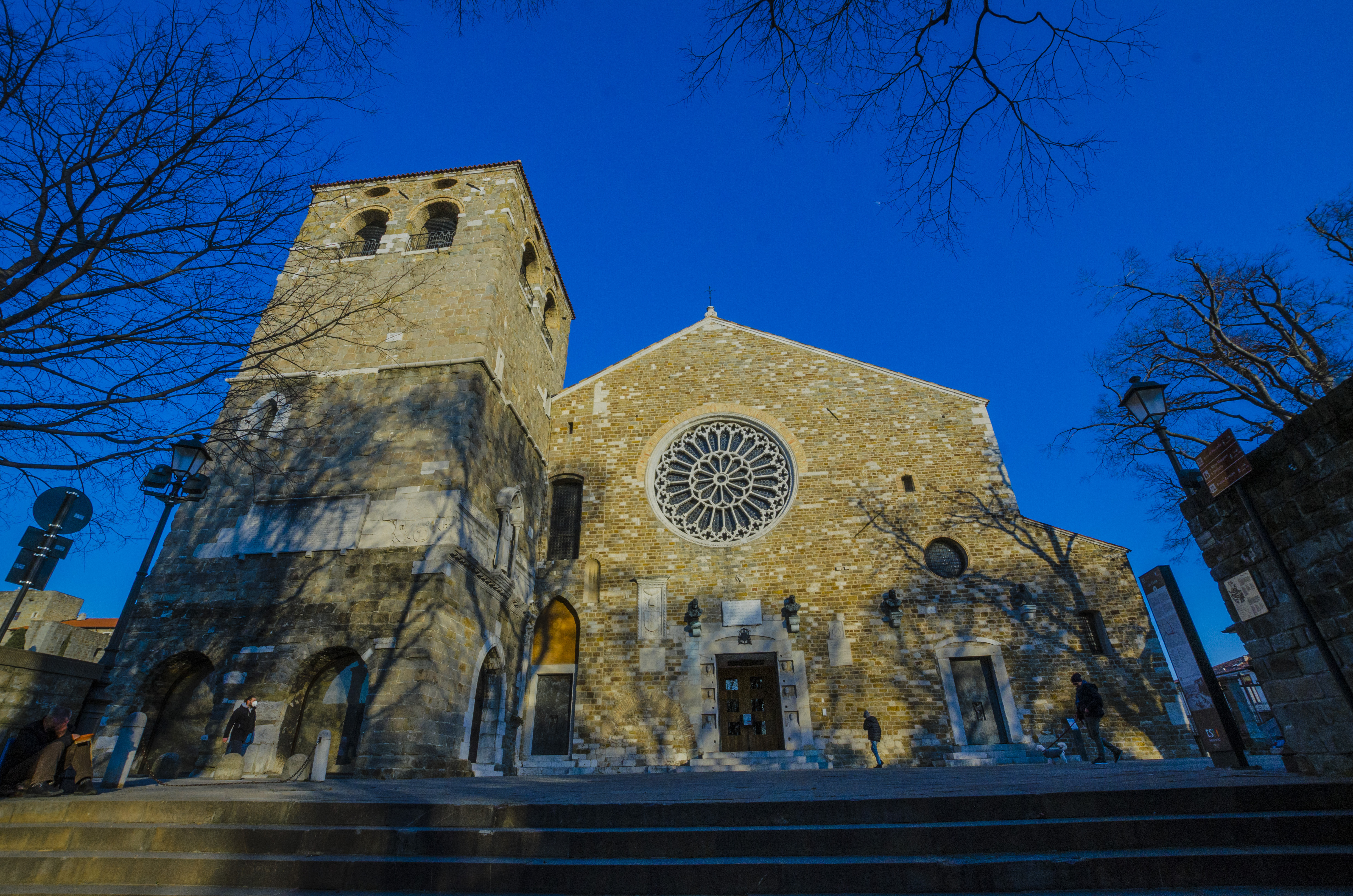by EH
The historic Cathedral of San Giusto Martire will resonate with a unique cultural symphony on Wednesday, July 24, at 8:30 PM. The Tartini Conservatory of Trieste is set to unveil its new production, “Antennae/Liturgia,” featuring music by the renowned Serbian composer Aleksandra Vrebalov.
The evening will commence with an evocative prelude performed by the Choir of the Chapel of the Serbian Orthodox Church of San Spiridione of Trieste, presenting excerpts from “Liturgia,” a piece by its 19th-century founder, the Trieste composer Francesco Sinico.
This concert is a highlight of Italy-Serbia cultural cooperation, supported by the Faculty of Music at the University of the Arts in Belgrade, the Academy of Arts, and the St. Jovan Damaskin Choir of Novi Sad. The event also involves the Benedetto Marcello Conservatory of Venice and the Choir of the Serbian Orthodox Church of San Spiridione of Trieste.
Following its world premiere at Mittelfest 2024 on Tuesday, July 23, the production will see its Trieste debut confirmed with the attendance of Bishop Enrico Trevisi and Bishop Jerotej Nikola Petrovic from the Serbian city of Šabac. Their presence underscores the event’s commitment to fostering interfaith dialogue between the Catholic and Serbian Orthodox Churches.
A Confluence of Musical Traditions
On stage, the audience will witness a collaboration of the St. Jovan Damaskin Choir, under the direction of Vladimir Antić, alongside the 34 singers of the Antennae Choir, meticulously prepared by Dragana Jovanović from the University of the Arts in Belgrade and Božidar Crnjanski from the Academy of Arts in Novi Sad. The production will be conducted by Maestro Petar Matošević.
“Antennae” is described as a mystical concert for a mixed choir, four trumpets, two organs, bells, string quartet, and Byzantine singers. It draws inspiration from a 15th-century icon of the Virgin Eleusa, attributed to the painter Angelos Akotantos. Vrebalov’s score embodies the rich and diverse musical and confessional traditions of the Balkans, creating what she terms “a human tuning fork” that seeks to align and sustain a common frequency among listeners.
Vrebalov explains, “The sound becomes a guiding thread, a buzzing flow of breath and frequency, independent of the decision to join or remain watching.” This centuries-spanning musical journey begins with the Choir of the Chapel of the Serbian Orthodox Church of San Spiridione, performing Sinico’s “Liturgia,” a piece reflective of the choir’s founding in 1837.
A Symbol of Cultural Synergy
This production exemplifies the close collaboration between leading Serbian music institutions, including the Faculty of Music at the University of the Arts in Belgrade and the Academy of Arts in Novi Sad. Recognized as an event of cultural cooperation under Italian law l.212/2012, the concert also sees contributions from the St. Jovan Damaskin Choir of Novi Sad and the Benedetto Marcello Conservatory of Venice, coordinated by Andrea Amendola, head of International Productions at the Tartini Conservatory, in agreement with its director, Sandro Torlontano.
Aleksandra Vrebalov: A Fusion of Musical Worlds
Aleksandra Vrebalov, a composition teacher at the Academy of Arts in Novi Sad, has crafted over 90 works that span concert music, opera, dance, and film. Her compositions are known for integrating influences from the diverse musical traditions of Serbia, the United States, and the Middle East. Vrebalov’s oeuvre includes commissions from prestigious institutions like Carnegie Hall, the English National Ballet, and the Forbidden City Orchestra of Beijing. Her longstanding collaboration with the Kronos Quartet has produced 18 works.
A recipient of numerous accolades, including the Harvard Fromm Commission and the American Academy of Arts and Letters Charles Ives Fellowship, Vrebalov has also been recognized in her native Serbia with the Gold Badge from the Serbian Cultural and Educational Association for her contributions to Serbian culture.
Her music, deeply attentive to social and humanitarian issues, has seen her perform with young refugees from Syria and Iraq at the Flying Carpets Festival on the Turkish-Syrian border. Over twenty CDs feature her compositions, recorded for labels such as Nonesuch and Cantaloupe.
Francesco Sinico: A Legacy of Belcanto
The evening also pays homage to Francesco Sinico, a student of Giuseppe Farinelli, and a pivotal figure in Trieste’s musical history. Sinico founded a singing school and the Choir of the Church of San Spiridione at the request of the Serbian Orthodox community in 1837. His and his son Giuseppe’s legacy as promoters of the Italian cultural identity of Trieste remains influential, particularly in their vocal chamber music, which stands as a testament to the Italian Belcanto tradition.
For further information and details about the production, visit conts.it or call 040.6724911.





























